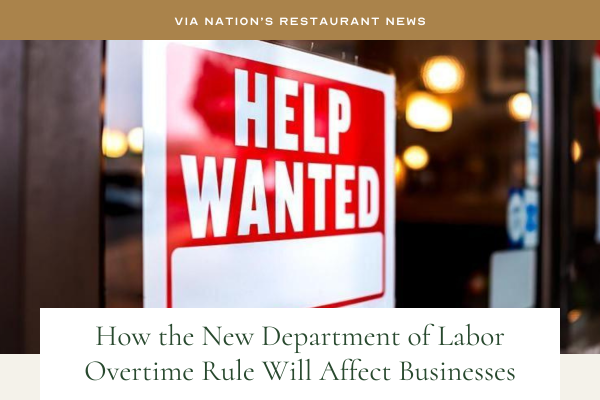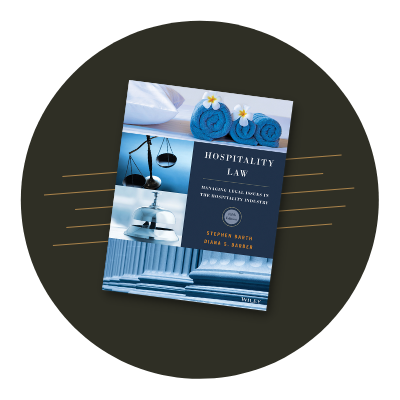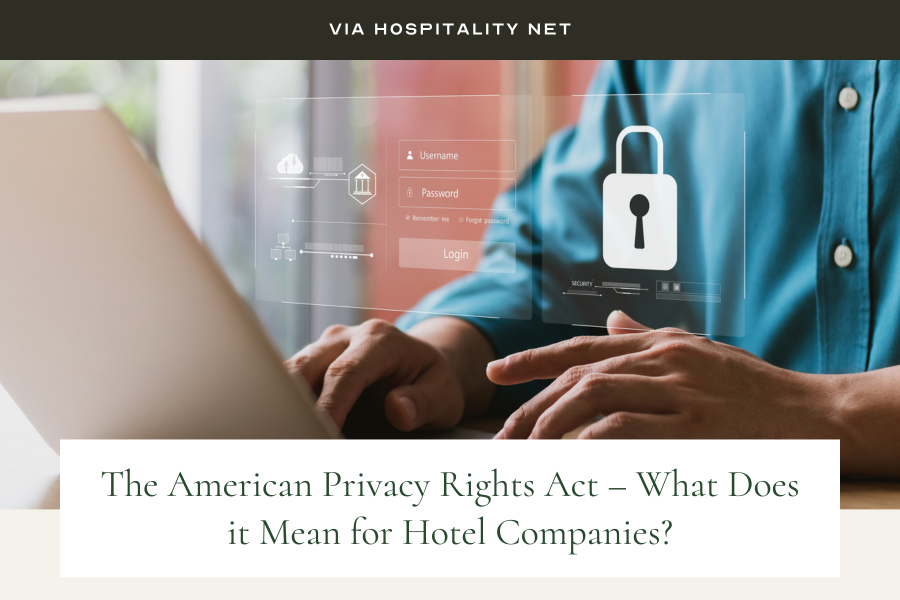 |
|
|
 |
|
|
|
On Tuesday, the U.S. Department of Labor issued a final rule on new overtime requirements and exemptions of overtime eligibility. Starting July 1, the minimum eligibility requirements under the Fair Labor Standards Act will increase from $35,568 to $55,068, or from $684 per week to $844 per week.
On an eight-hour workweek, workers paid $21 hourly or less would now be eligible for overtime compensation, up from $17 hourly during the previous overtime rule. The minimum salary eligibility requirement would go up again on Jan. 1, 2025, to $1,128 per week (equivalent to $58,656 per year, or $28 per hour), and then periodically increase every three years beginning July 1, 2027. |
| READ MORE |
|
|
 |
|
Follow Our Blog
Keep up with the latest and dive into all areas of hospitality and travel news through our blog which features new articles regularly. |
|
 |
|
Purchase Hospitality Law 5th Edition
Hospitality Law: Managing Legal Issues in the Hospitality Industry is a practical approach to hospitality law. To buy a copy, click here. |
|
|
|
|
|
|
Hoteliers Bolster Security Personnel, Technology To Increase Safety Measures
via CoStar
There are also new advances to keep employees safe, particularly housekeepers and others who enter guestrooms alone. Many communities are implementing laws that stipulate that housekeepers are equipped with a convenient panic button in the event they feel endangered. |
|
|
|
|
|
FTC Finalizes Non-Compete Rule – Prohibiting All New Non-Compete Agreements
via Conn Maciel Carey
The Final Rule will also require employers to cease enforcement of existing non-competes (aside from agreements with senior executives, as we will explain below) and actively inform workers that existing non-compete clauses will no longer be enforced. |
|
|
|
|
|
|
|
Airlines are Ordered to Give Full Refunds Instead of Vouchers and to Stop Hiding Fees
via NPR
In an effort to crack down on airlines that charge passengers steep fees to check bags and change flights, the U.S. Department of Transportation has announced new regulations aimed at expanding consumer protections. |
|
|
|
|
|
California is Banning Hidden Restaurant Fees, In Addition to Other Surcharges
via Food And Wine
Hands down, one of the most contentious restaurant issues in 2024 is restaurant surcharges. From New York to Chicago, New Orleans to Los Angeles, owners have added fees to cover everything from tips for the kitchen to health care premiums, higher utility costs, and even pay for security. |
|
|
|
|
|
 |
|
|
|
On April 7, 2024, the United States House Committee on Energy and Commerce released the American Privacy Rights Act (APRA). While every Congress for more than a decade has introduced multiple proposals to address privacy rights on a national scale, none have gained traction, and while there’s every reason to suspect that the APRA will meet the same fate – headwinds are coming from the states that have already adopted comprehensive privacy statutes, and it is notoriously difficult to adopt legislation in an election year, and especially now), the APRA is being taken seriously, and might be the basis for a long-awaited, and long-needed, national privacy law. |
| READ MORE |
|
|
|
|
|
|
|
|
Copyright © 2024 HospitalityLawyer.com, All rights reserved.
You are receiving this email because you opted in at HospitalityLawyer.com®
Our mailing address is:
HospitalityLawyer.com®
2651 Kipling St, Apt 1809
Houston, Texas, 77098
The articles included in this newsletter are subject to HospitalityLawyer.com's Terms Of Use. |
|
|
|
|